Plant Watch Top 10 Engineering Projects of May 2023
Related Vendors
PROCESS Worldwide brings to you the ‘Top 10 plant engineering projects of May 2023’ from all over the world. Right from Topsoe developing the world’s first industrial scale SOEC electrolyzer facility to Mc Dermott securing a PMC contract for India's first mega-scale MAH plant, find out all the projects making headlines here.
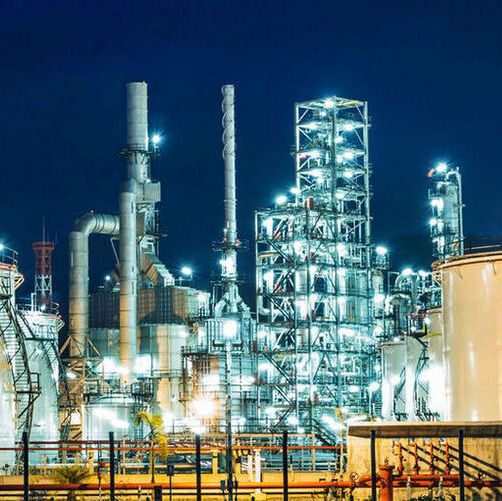
Topsoe Develops World’s First Industrial Scale SOEC Electrolyzer Facility
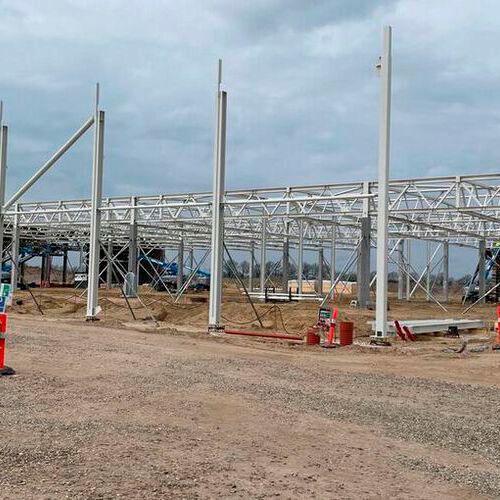
May 12 – Topsoe is dedicated to delivering the solutions needed to decarbonize hard-to-abate sectors such as aviation, shipping, long-haul transportation as well as heavy industry, responsible for around 30 percent of global emissions. To reach net zero on a global scale in 2050 an estimated 3670-gigawatts of installed electrolysis capacity is required by 2050. A prerequisite for having enough installed electrolyzer capacity, that enables industry producing green hydrogen, is to build up manufacturing capacity at speed. And that is exactly what Topsoe is doing.
Kim Hedegaard, CEO Power-to-X at Topsoe, said: “Our factory will take high-temperature electrolysis from the laboratory environment to industrial scale and provide the first industrial use case. Our SOEC technology helps to answer the question of how to turn on the power when the winds aren’t blowing, and the sun isn’t shining, as green hydrogen and its derivatives can be stored and ready to use when we have a deficit in renewables. It also bridges the gap between renewable energy and the hard-to-abate sectors, that we in Topsoe are determined to decarbonize.”
Lummus Technology Selected for New Propylene Plant in Saudi Arabia
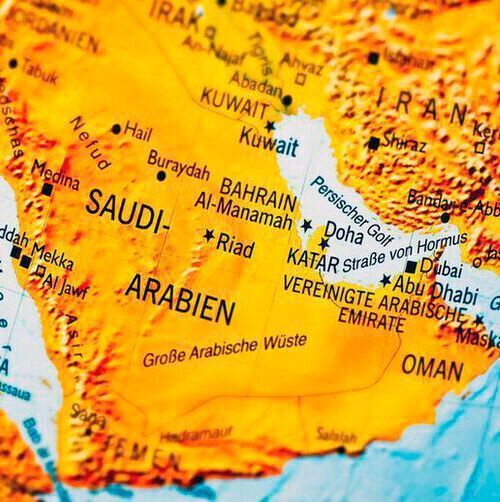
May 12 – Lummus Technology has recently announced that Alujain National Industrial Co. has selected its C3 Catofin propane dehydrogenation (PDH) technology for their new propylene plant in Yanbu, Kingdom of Saudi Arabia (KSA). This is the first time Alujain will license Lummus’ PDH technology at its Yanbu complex.
“We are excited that Alujain has selected Lummus’ PDH technology and look forward to supporting their growth and expansion in petrochemicals,” said Leon de Bruyn, President and Chief Executive Officer of Lummus Technology. “Alujain will be able to leverage the technology’s requisite reliability, low cost and reduced energy consumption to help them expand its propylene production in Saudi Arabia and achieve a competitive advantage in the market.”
The scope of this award includes the technology license and basic engineering. Once complete, the plant will produce 600,000 MTA of propylene, which will serve as feedstock for Alujain’s new downstream polypropylene production.
In addition to the licensed technology, Alujain will have access to Lummus’ portfolio of lifecycle services during the operation phase of the plant. This includes advanced operator training simulators, extended technical support and digitalization services.
Arcadia Chooses Sasol, Topsoe Technology for First Commercial Efuels Plant in Denmark

May 15 – Arcadia efuels (Arcadia), a leading developer of efuels; Sasol and Topsoe have signed a single license agreement for Arcadia’s Vordingborg efuels plant. The signing of the agreement represents a major milestone in maturing the project and ahead of the next major milestone being Arcadia’s final investment decision.
The production of sustainable aviation fuel (SAF) is not only important for the three companies, society is also in desperate need for low carbon alternatives to a fossil-fueled aviation industry. According to IATA – the International Aviation Transport Association – 2022 only saw around 300 million litres of SAF produced. This is compared to an estimated 450 billion litres per year needed for the airline sector to achieve net zero CO2 emissions by 2050.
Once operational, the plant will deliver efuels for the Danish and European aviation markets to help meet the European Union mandate of 1.2 % RFNBO (Renewable Fuels of non-Biological Origin) or efuels in 2030.
Helge Sachs, SVP of Sasol ecoft, said: “This is a momentous occasion for us to offering the first G2L license, a technology which allows a pathway to accelerate the decarbonization of our industry, specifically the aviation and heavy transport industries. It is a culmination of many years of development and cooperation between two world class leading technology partners to be able to offer Arcadia and the market a combined Power-to-Liquid technology.”
The technology support for Arcadia marks the first single point license between Topsoe and Sasol, where the two companies will deliver their proprietary technology (G2L), converting CO2 and H2 into efuel for aviation.
The technology primarily differs from production of natural gas-based fuels in the feedstock and technology for synthesis gas production. In efuels plants, the feedstock is carbon dioxide, water, and power. The water is converted into hydrogen by means of electrolysis and the synthesis gas is produced from carbon dioxide and hydrogen.
Orlen Południe Uses BASF Technology for Sustainable Propylene Glycol Production
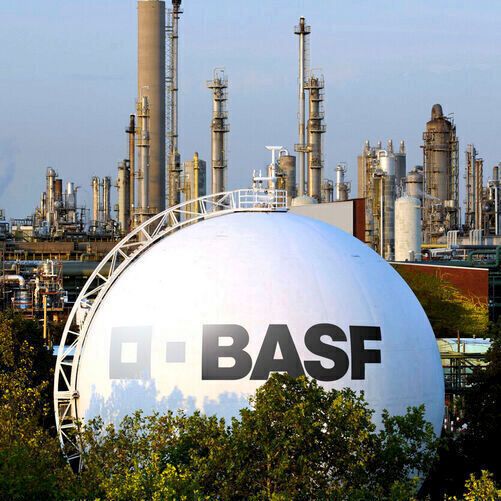
May 17 – Orlen Południe, a leading player in biofuels in Poland, has recently concluded the first year of operation of its Biopg plant, converting glycerol, a by-product of biodiesel production, into renewable propylene glycol (Biopg). Biopg obtained from glycerin is bio-based and a highly demanded product used to produce polyester resins, polyurethanes, paints and de-icing solutions, solvents for the food industry, and is used as an ingredient in deodorant sticks and toothpaste. Compared to fossil-based propylene glycol, Biopg reduces the CO2 footprint by at least 60 percent whilst offering the same product quality.
Air Liquide Engineering & Construction provided the license, basic engineering, and proprietary equipment for the new plant, combining its expertise with commercially proven BASF technology.
BASF’s Biopg technology is operating at full scale for already more than a decade, showing very high selectivity and glycerol conversion using BASF’s H9-66 catalyst. The outstanding catalyst performance enables the hydrogenation in liquid phase without any need for separation of intermediates or solvents, leading to lower energy consumptions compared to other processes.
The Biopg plant supports Orlen Group’s objective of achieving CO2 neutrality by 2050. With an annual capacity of 30,000 metric tons, Orlen Południe is the first Polish producer of propylene glycol aiming to meet 75 percent of the country's propylene glycol needs.
HIF Global Turns to Johnson Matthey, Honeywell Technologies for SAF Unit in USA

May 22 – HIF Global, the world’s leading efuels company, recently announced agreements with Johnson Matthey and Honeywell to conduct preliminary engineering for HIF’s first Sustainable Aviation Fuel (SAF) facility in the United States. The facility would produce approximately 11,000 barrels per day of e-SAF, decarbonizing over 12 billion air passenger miles per year. E-SAF is sustainable aviation fuel made by combining recycled carbon dioxide (CO2) with hydrogen produced using renewable electricity. E-SAF can be dropped-in to existing jet engines without any modifications required.
Meg Gentle, Executive Director of HIF Global, said, “efuels are a replacement for fossil fuels and are a necessary solution for decarbonizing global transportation. At HIF Global, we have already demonstrated the capability to produce e-methanol for marine transport and e-gasoline for road transport with the 2022 start-up of the HIF Haru Oni Demonstration Facility in southern Patagonia, Chile, where the wind is blowing all the time. Together with Johnson Matthey and Honeywell, we intend to deliver an efuel solution for airplanes before 2030.”
Renato Pereira, CEO of HIF USA, added, “Air travel is the most challenging sector of the global transportation infrastructure to decarbonize, with limited low carbon alternatives to serve growing demand for jet fuel. The simplicity of efuels is that they are produced from air and water for use in existing engines. E-SAF produced using Honeywell’s technology can reduce CO2 emissions compared to conventional jet fuel by 88 %. When blended with conventional jet fuel, e-SAF can be dropped-in immediately to existing jet engines with no modifications required.”
Johnson Matthey’s technology will use renewable (green) hydrogen and recycled CO2 to produce e-methanol which can be used in the shipping and chemical industries or upgraded into other efuels including e-SAF. Johnson Matthey’s technology is producing e-methanol today at the HIF Haru Oni Demonstration Plant in Chile.
The Honeywell UOP efining technology converts e-methanol into e-SAF by utilizing Honeywell’s commercially proven methanol to olefins and oligomerization process.
Yara to Develop New Specialty Fertilizers and Biostimulants Plant
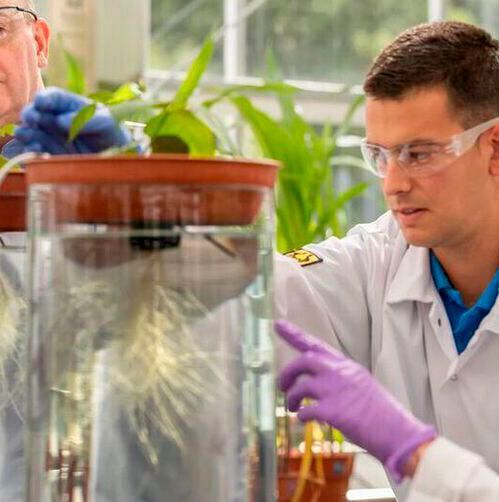
May 24 – Yara International has recently announced that it will build a new global production plant for specialty crop nutrition products and biostimulants designed to increase yields and improve quality. The plant will be one of the largest in the world for these products, which are crucial for achieving food security and combating climate change.
The new plant will allow Yara to increase its footprint in this specialty crop nutrition business, one of the fastest growing markets in agriculture. Sales of Yaravita specialty crop nutrition products and biostimulants have grown fivefold in the last 20 years. These products are formulated to meet the specific needs of crops throughout the growing season and to help them increase their resilience to climate change.
The plant, to be built close to the company’s existing site in Yorkshire, UK, will allow Yara to double the capacity of its Yaravita products when the facility is expected to be operational by the end of 2025 and further expand production capacity if needed. Virtually all the output from the plant will be exported to markets around the world.
“Our specialty crop nutrition products help farmers increase yields and quality without increasing land use. That not only benefits farmers but is also good for the planet,” says Mónica Andrés Enríquez, Executive Vice President for Europe at Yara International. “It’s no wonder that this market is growing exponentially. Amid today’s food security and climate change challenges, it’s more important than ever to feed the world with nutritious food while also protecting the planet,” she adds.
Linde, Heidelberg Materials’ CO2 Capture Plant to Use BASF Technology
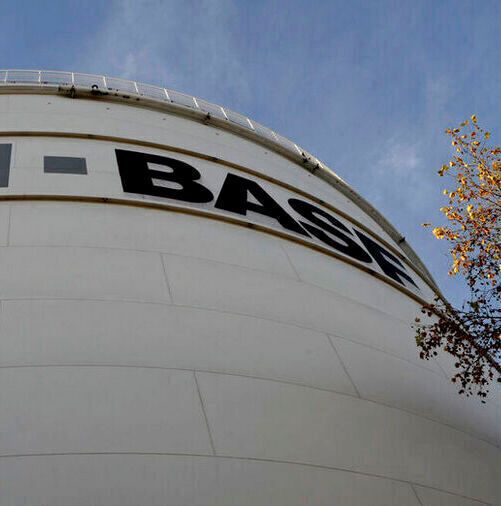
May 24 – A CO2 capture process, jointly developed by Linde, Heidelberg Materials, and BASF, and based on BASF’s advanced OASE blue technology, will be used for the first time at a large-scale CO2-capture facility operated by Capture-to-Use (CAP2U) – a new joint venture established by Heidelberg Materials and Linde. The plant will be the world’s first industrial-scale carbon capture and utilization (CCU) facility. Around 70,000 tons per year of CO₂ will be captured, purified and liquefied. Linde will sell the majority of the resulting liquid CO₂ as a feedstock for the chemicals industry and into the food and beverage end-use markets.
The process will also use the patented OASE aerozone design – a technology that reduces dust and aerosol-induced emissions from the gas flow – in one of its first industrial applications.
“Our portfolio of OASE technologies makes a significant contribution to sustainability and is perfectly suited to help our customers achieve their sustainability targets. This carbon capture and use unit facility has the potential to become a show-case project in a hard-to-abate sector. We are proud to work with Linde and Heidelberg Materials and contribute our more than 50 years of experience in industrial gas treatment and pave the way for a sustainable cement production,” said Andreas Northemann, Head of BASF’s global Gas Treatment business.
According to a study by the Oxford Institute for Energy Studies, the cement industry is responsible for seven percent of global industrial greenhouse gas emissions. Despite the environmental techniques adopted by the industry, cement production is, and will continue to be, associated with significant amounts of CO2 generation because it uses a calcination process to treat calcium carbonate (limestone). In contrast to other energy-intensive industries, emissions caused by fuel consumption do not constitute the major part of total emissions. As a result, carbon capture utilization and storage (CCUS) is essential to mitigate these hard-to-abate industrial emissions.
Oxychem Collaborates with thyssenkrupp nucera to Install Next Generation Electrolyzers

May 25 – thyssenkrupp nucera is partnering with Oxychem to install the next generation ebitac v7 electrolyzers to support the conversion of its Battleground plant in Laporte, Texas, from the diaphragm to membrane chlor-alkali technology.
“The fact that Oxychem has contracted us for the important retrofit of its large chlor-alkali plant makes us very pleased because it demonstrates the great trust and partnership, we have built with Oxychem through our chlor-alkali technology and service,” says Dr. Werner Ponikwar, CEO and Chairman of the Executive Board of thyssenkrupp nucera.
thyssenkrupp nucera offers world-class technologies for highly efficient electrolysis plants and supports the conversion of Oxychem’s Battleground plant diaphragm cells. Production and delivery will take approximately three years, and thyssenkrupp nucera will expand its manufacturing facilities to accommodate this significant supply agreement.
“Oxychem has had a long-standing partnership with thyssenkrupp nucera that supports our production of essential commodity chemicals helping elevate the quality of life across the globe”, says Wade Alleman, Oxychem Executive Vice President of Technology, Business Development & Support. “This multi-year project will modernize our chlor-alkali manufacturing process and increase our production capacity.”
In this project, thyssenkrupp nucera was involved in the early stages of project development and supplied the basic design for the core of the chlor-alkali facility. The transformation of the chlor-alkali plant into membrane technology is scheduled to begin in 2023 and is expected to be finished by 2026.
Wacker Concludes Capacity Expansion for Dispersions and Powders
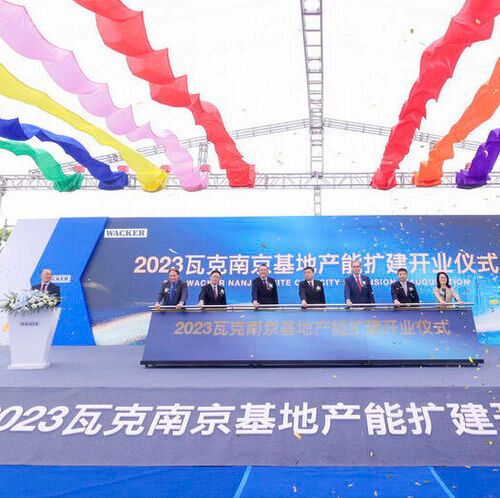
May 25 – An inauguration ceremony was recently held to mark the completion of the capacity expansion for vinyl-acetate-ethylene copolymer (VAE) dispersions and VAE dispersible polymer powders at Wacker’s Nanjing site in China. With a new reactor for dispersions and a new spray dryer for dispersible polymer powders, the expansion more than doubles Wacker’s production capacity in Nanjing, enabling it to meet growing customer demand for its high-quality binders, particularly from China’s buoyant construction industry. Wacker invested around 100 million dollars in its integrated production site for the expansion measure.
“China is the world’s largest construction market, covering about 20 percent of global construction expenditure. Our VAE dispersions and dispersible powders enable us to supply the growing construction market in China with binders for various applications such as ceramic tile adhesives, waterproofing membranes or carpets. This capacity expansion in Nanjing strengthens our position as the global leader for vinyl-acetate-ethylene dispersions and polymer powders”, noted Christian Hartel, CEO of Wacker Chemie. What is more, China is already one of the world’s most important adhesive markets. “Our new plant is close to our customers, thereby supporting their growth even more effectively”, added Peter Summo, who heads the Wacker Polymers business division.
During the inauguration ceremony, Alvin Hu, President of Wacker China, stated that the expansion demonstrated Wacker’s strong focus on the market in China. “The capacity expansion project at the Nanjing site is a milestone for Wacker China. With the expansion, we have at the same time reserved sufficient space for subsequent production lines, allowing for the rapid construction of future expansion projects. It will not only meet increasing customer demand in China, but also provide Wacker with sufficient capacity for its long-term development in the region.”
Wacker’s Nanjing expansion corresponds to a total investment of more than 100 million dollars. The new production facilities more than double the annual capacity of VAE dispersions and VAE dispersible polymer powders on site. The VAE dispersions project is designed around an advanced dispersion-polymerization process and a safety control system that meets high standards, making the entire process cutting edge in this field. The new production line for VAE dispersible polymer powders adopts advanced spray-drying technology and features an advanced process control system (APC). The two new plants are the largest of their kind in the world. The Nanjing site is one of four production sites Wacker Polymers operates globally.
Wacker’s Nanjing expansion was launched at the end of 2020 and successfully completed after overcoming various challenges posed by the Corona pandemic during construction. Nearly two hundred guests attended the inauguration event, including government representatives, customers, and distributors.
Mc Dermott Wins PMC Contract for India's First Mega-Scale MAH Plant

May 29 – Mc Dermott has been awarded a project management consultancy (PMC) contract from India Oil Corporation Ltd (IOCL) for the Maleic Anhydride (MAH) unit at the Panipat Refinery and Petrochemical Complex, located 62 miles (100 kilometers) from New Delhi, India.
Mc Dermott's scope includes project management and consultancy services for the unit, including front-end engineering design (Feed), review of engineering activities, construction supervision services, assistance in start-up, pre-commissioning, commissioning, performance guarantee test run and project closure.
This is India's first mega-scale MAH plant to manufacture chemical products. MAH is used to make specialty products like polyester resins, surface coating plasticizers, agrochemicals and lubricant additives. Other chemicals that will be produced from the plant include Tetra Hydro Furan (THF), which is widely used in adhesives and vinyl film, and Butanediol (BDO), which is used in engineering-grade plastic and biodegradable fibers.
Work on the project will be executed from Mc Dermott's Center of Excellence in Gurugram, India.
(ID:49515152)



:quality(80)/p7i.vogel.de/wcms/ce/24/ce246c7f639c498e17de2876795051d0/0111701093.jpeg)
:quality(80)/p7i.vogel.de/wcms/0b/00/0b0051174fd695fd961c9cb01e973351/0111700293.jpeg)
:quality(80)/p7i.vogel.de/wcms/49/ec/49ecabf5c635a0815175000e5a16104f/0111734656.jpeg)
:quality(80)/p7i.vogel.de/wcms/e7/c1/e7c1fa3560bf2f8d5dd5aef9ff8f712b/0111667989.jpeg)
:quality(80)/p7i.vogel.de/wcms/e3/16/e31648507784e40fa6023f2ee5328da6/0111993590.jpeg)
:quality(80)/p7i.vogel.de/wcms/7a/06/7a0639733e7d9134a157c7a4f1864dda/0111991243.jpeg)
:quality(80)/p7i.vogel.de/wcms/da/f6/daf6dc1debb7c34be06f99eff7ef416d/0111979840.jpeg)
:quality(80)/p7i.vogel.de/wcms/70/1b/701b394dd45f12976d0d4265ccd32fcc/0111744769.jpeg)
:quality(80)/p7i.vogel.de/wcms/33/7c/337ca4eb2638fe95b46967fe194e3f10/0110839569.jpeg)
:quality(80)/p7i.vogel.de/wcms/20/e5/20e5cbba0c76079311386cfca6d413ce/0110946640.jpeg)
:quality(80)/p7i.vogel.de/wcms/a0/ec/a0ecc3759144749ae34fc69ff34a2bef/0109635835.jpeg)
:quality(80)/p7i.vogel.de/wcms/0a/95/0a9539d21db5621ea6d89a29761cb089/0108737015.jpeg)
:quality(80)/p7i.vogel.de/wcms/4d/4d/4d4de0981d005ade1d22c2c1653a97ad/0111813373.jpeg)
:quality(80)/p7i.vogel.de/wcms/2c/1d/2c1d2b2eca9e9422b194a2f1b3d30e7f/0111699941.jpeg)
:quality(80)/p7i.vogel.de/wcms/91/39/9139140a4ac8c13e24b69093eaad022f/0111360135.jpeg)
:quality(80)/p7i.vogel.de/wcms/0f/a9/0fa93fa8454513de53089db61c1cf36f/0111807620.jpeg)
:quality(80)/p7i.vogel.de/wcms/22/dd/22dd62f44187717831774e97c17e658c/0111864849.jpeg)
:quality(80)/p7i.vogel.de/wcms/08/3b/083b5261769350ed649021e7c75da2eb/0111034432.jpeg)
:quality(80)/p7i.vogel.de/wcms/33/ef/33ef7ee3600e5535983cb976808cf932/0110808143.jpeg)
:quality(80)/p7i.vogel.de/wcms/72/75/7275c85f90ca1c80fa06cd97841dbc43/0111653607.jpeg)
:quality(80)/p7i.vogel.de/wcms/b6/ff/b6ffff4edccc5509884c3e3f827d88be/0111520111.jpeg)
:quality(80)/p7i.vogel.de/wcms/89/3e/893e2a9910adf8ac2f463b09a408aa33/0111349949.jpeg)
:quality(80)/p7i.vogel.de/wcms/33/37/333713f935f5497a9e4ff563412e8031/0111516852.jpeg)
![Can we return polymers to their primal state of short hydrocarbon molecules? Chemical recycling does just that — but it needs the correct technologies for the mixing of the raw materials. (Bild: Source: © Scisetti Alfio, maykal, BillionPhotos.com, tunedin, aryfahmed, gertrudda - stock.adobe.com; Ekato [M] Frank) Can we return polymers to their primal state of short hydrocarbon molecules? Chemical recycling does just that — but it needs the correct technologies for the mixing of the raw materials. (Bild: Source: © Scisetti Alfio, maykal, BillionPhotos.com, tunedin, aryfahmed, gertrudda - stock.adobe.com; Ekato [M] Frank)](https://cdn1.vogel.de/i5R9yjfpD0bcs3nfbm5deC-y_s8=/288x162/smart/filters:format(jpg):quality(80)/p7i.vogel.de/wcms/cb/f0/cbf0e414789b3b153e95845d4c2a39ea/0110589787.jpeg)
:quality(80)/p7i.vogel.de/wcms/a8/f3/a8f3833feaa23bd1ae3b7d85f65b7333/0109606470.jpeg)
:quality(80)/p7i.vogel.de/wcms/07/88/0788ff589683856740c715ea3d2be0be/0106143112.jpeg)
:quality(80)/p7i.vogel.de/wcms/be/2e/be2e429a4f2d04031ff6b1e2c8a624dd/0106660771.jpeg)
:quality(80)/p7i.vogel.de/wcms/85/e6/85e69a2bafc3eb5b74ce0422ceaf9d1b/0111990193.jpeg)
:quality(80)/p7i.vogel.de/wcms/26/c1/26c189260c38e53888ec43bf1062d41c/0111980308.jpeg)
:quality(80)/p7i.vogel.de/wcms/a8/ef/a8efdb24e36e9497ccb2e3dba6861524/0111862880.jpeg)
:quality(80)/p7i.vogel.de/wcms/8b/4c/8b4c5dda7c90f76ca69d7c32b2626af3/0111747700.jpeg)
:quality(80)/p7i.vogel.de/wcms/c9/79/c979a20b32395ddfa93fe7ead90578a0/0108386061.jpeg)
:quality(80)/p7i.vogel.de/wcms/9e/5c/9e5c92d942ed046a27562d6e3d730c92/0103483548.jpeg)
:quality(80)/images.vogel.de/vogelonline/bdb/1952700/1952707/original.jpg)
:quality(80)/images.vogel.de/vogelonline/bdb/1878900/1878914/original.jpg)
:quality(80)/p7i.vogel.de/wcms/d0/a9/d0a9d0ad11c7b53ab148a0862a375872/0111574392.jpeg)
:quality(80)/p7i.vogel.de/wcms/1d/7c/1d7c6361016ae037b2e75f9a7af2bd1c/0110678701.jpeg)
:quality(80)/p7i.vogel.de/wcms/ae/63/ae63db84a1ed8c3b0a80c48b75d1f005/0110598262.jpeg)
:quality(80)/p7i.vogel.de/wcms/45/90/4590f1627eef5db43e5dbebb8714e7b7/0110031283.jpeg)
:quality(80)/p7i.vogel.de/wcms/29/44/294460880320b57be6adb49c9549dbf2/0105775044.jpeg)
:quality(80)/p7i.vogel.de/wcms/38/90/38902a33dea5c2d9d56e7a42ca77c928/0105794151.jpeg)
:quality(80)/p7i.vogel.de/wcms/8d/2e/8d2e1d7dd94afa3e88bd9b2831f1faa5/0106258058.jpeg)
:quality(80)/p7i.vogel.de/wcms/ea/c0/eac0be6a02da723fb811d933d73ba9ec/0106256725.jpeg)
:fill(fff,0)/images.vogel.de/vogelonline/companyimg/2000/2093/65.jpg)
:fill(fff,0)/images.vogel.de/vogelonline/companyimg/122600/122692/65.png)
:fill(fff,0)/images.vogel.de/vogelonline/companyimg/101800/101879/65.jpg)
:quality(80)/images.vogel.de/vogelonline/bdb/1959100/1959175/original.jpg)
:quality(80)/images.vogel.de/vogelonline/bdb/1948800/1948801/original.jpg)